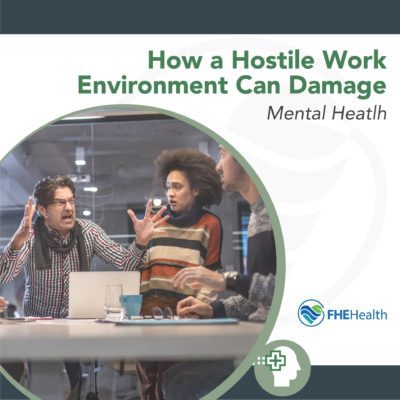The unique work stress that transit workers face can take a toll on mental health. That’s why it helps to know you’re not alone.
When the life of an ATU member, their spouse, or their child hangs in the balance, FHE Health is there. We’ve also been working with unions in times of crisis and trauma. When violence took the lives of ATU members in San Jose, FHE Health was there to help. When violence brought trauma to Kalamazoo, FHE Health was there, too.


This track record has earned us the honor of being officially endorsed as the “Resource of Choice” of the ATU International Local after Local. FHE is 100% committed to helping ATU union workers stand strong, and we will not rest on our past successes. Now more than ever, it is critical that ATU Officers, Local Presidents and Executive Boards provide their membership with the tools they need to cope with stress, anxiety, and depression. That is why we’ve compiled this help guide for ATU members to equip you with self-care and other preventative mental health supports and because we’re here to support you and your loved ones as a nationally recognized provider of addiction and mental health treatment programs.
On-the-Job Pressures – High Stress, Hostile Workplaces, and Safety Concerns
Transit workers are the first to know how much the public depends on them for essential services—and the on-the-job pressures that can entail:
- A hostile work environment characterized by unwelcome or abusive conduct or behaviors that jeopardize one’s health and safety, such as sexual harassment. (For more information about how a hostile work environment can damage your mental health, check out this article by our team.)
- Higher levels of stress related to diminishing numbers of staff, budget cuts, and expanded work hours and responsibilities.
- Health and safety concerns from working in high-traffic areas where one’s risks of Covid infection are higher.
Self-Care Tools for Managing Job-Related Stress and Anxiety
Stress is a leading contributor to mental health disorders like anxiety and depression. (Explore how in this FHE article.) That is why learning how to manage work-related stress is critical—especially in a context where there are so many on-the-job pressures. Here are some self-care tools that we’ve assimilated for ATU members to help you cope and find work-life balance:
- How to know when the stress is too much – When work stress accumulates, it can negatively affect your mental and physical health. Discerning when you’ve reached your tipping point is not always easy, though. When in doubt, look for these five signs that work stress is toxic.
- Prioritizing self-care in times of stress – Self-care is even more critical in stressful times yet can also be harder to prioritize when the stress is at high decibels. In this short video, “Self-Care in Trying Times,” FHE Health Chief Clinical Officer Dr. Beau A. Nelson suggests some basic ways to exercise self-care when you’re feeling stressed out.
- How to cope with Covid anxieties in the workplace – Working through the pandemic meant more exposure to the virus and higher risks of infection. While the worst may have subsided, the reality remains that ATU members remain more exposed not just to Covid but other potentially unsafe behaviors in the workplace. That can create anxieties at work—hence this guide for how to cope.
- How to prioritize mental health over a job – Good self-care understands that mental health is more important than any job. This can be harder to implement, though, when your employer doesn’t value work-life balance, or you’re worried about losing your job. In this interview with ATU liaison and Director of Public Relations Janet B. Gerhard, you’ll get some helpful tips for prioritizing your mental health over work.
Mental Health Resources for Addressing Depression and Other Issues
Sometimes it may be too late for preventative health measures. Depression, substance abuse or another mental health issue may be affecting your quality of life and relationships, in which case these FHE resources may be of use:
- Mental health tools for managing depression – Job depression is common. When your depressive symptoms are work-related, these practical tips for what to do can help you navigate the challenges of depression and work.
- Tips for getting through a depressive episode – Anyone who has suffered from clinical depression knows how hard it can be to get through it. This FHE video suggests some constructive ways to cope and move through the symptoms to the other side.
- How to seek treatment for job-related stress – Depression is just one mental health issue that can be triggered by on-the-job stress. If work stress is causing a mental health issue, the next step may be seeking treatment and talking with your employer. Explore how to do that.
Other Resources for Union Members
Union members have special benefits and protections when it comes to mental and behavioral health. For more education and information about what your membership may afford, we invite you to explore these other FHE resources:
- Treatment Resources for Union Members
- 5 Ways Union Members Are Protecting Members’ Health During Covid-19
- Making the Most of Union Membership to Afford Therapy
For more information about how we may be able to help you, reach out to our ATU liaison Janet B. Gerhard at 1-267-249-0513. For immediate assistance, please call our 24/7 helpline at 1-888-307-7423. Our compassionate and knowledgeable counselors are available 24/7, 365 days a year, to take your call.
Related Articles
 How a Hostile Work Environment Can Damage Mental Health
How a Hostile Work Environment Can Damage Mental Health
What effects can a toxic work environment have on the average worker? Americans are among the most overworked populations in the world. A report cited in Business Insider found that the average employed American adult spends 47 hours per week working, compared to their European counterparts who, in countries like Germany and Sweden, work an average of 35. The fact that the United States’ brand of capitalism has normalized this behavior as necessary in a competitive economy doesn’t mean it’s in line with public health. Read More
 How Job Stress Can Lead to Addiction and Mental Health Issues
How Job Stress Can Lead to Addiction and Mental Health Issues
The American attitude toward work is unique on a global scale. Rather than working to live, many Americans, out of want or need, find themselves living to work. The average worker in the US works 47 hours a week, one of the highest averages in the Western world. In fact, the EU imposes a limit of no more than 48 hours a week, with many member countries averaging around 35 weekly hours. Read More
 How to Cope with COVID Anxieties in the Workplace
How to Cope with COVID Anxieties in the Workplace
We’ve all lived and worked in a different world in the last two years. The COVID-19 pandemic has changed numerous aspects of life. In efforts to protect their employees’ health, many businesses have instructed employees not to work in their offices but to work from home using the internet and technologies such as the cloud and Zoom to enable regular workflows and meetings. Read More








